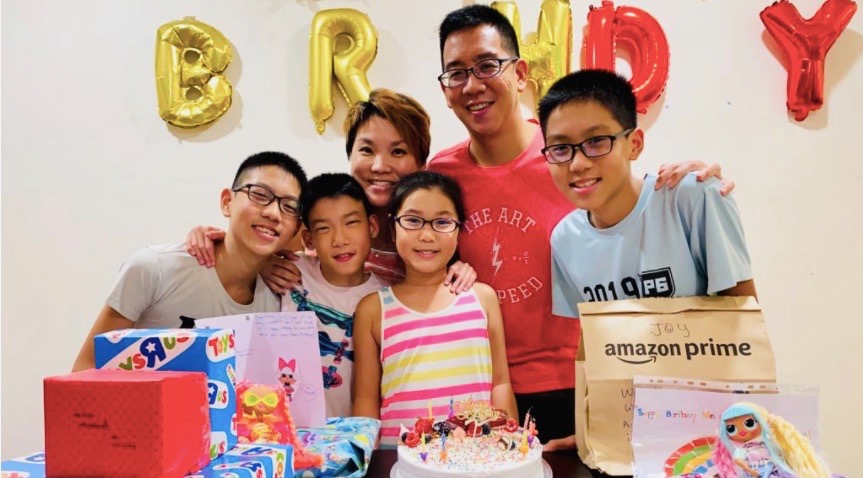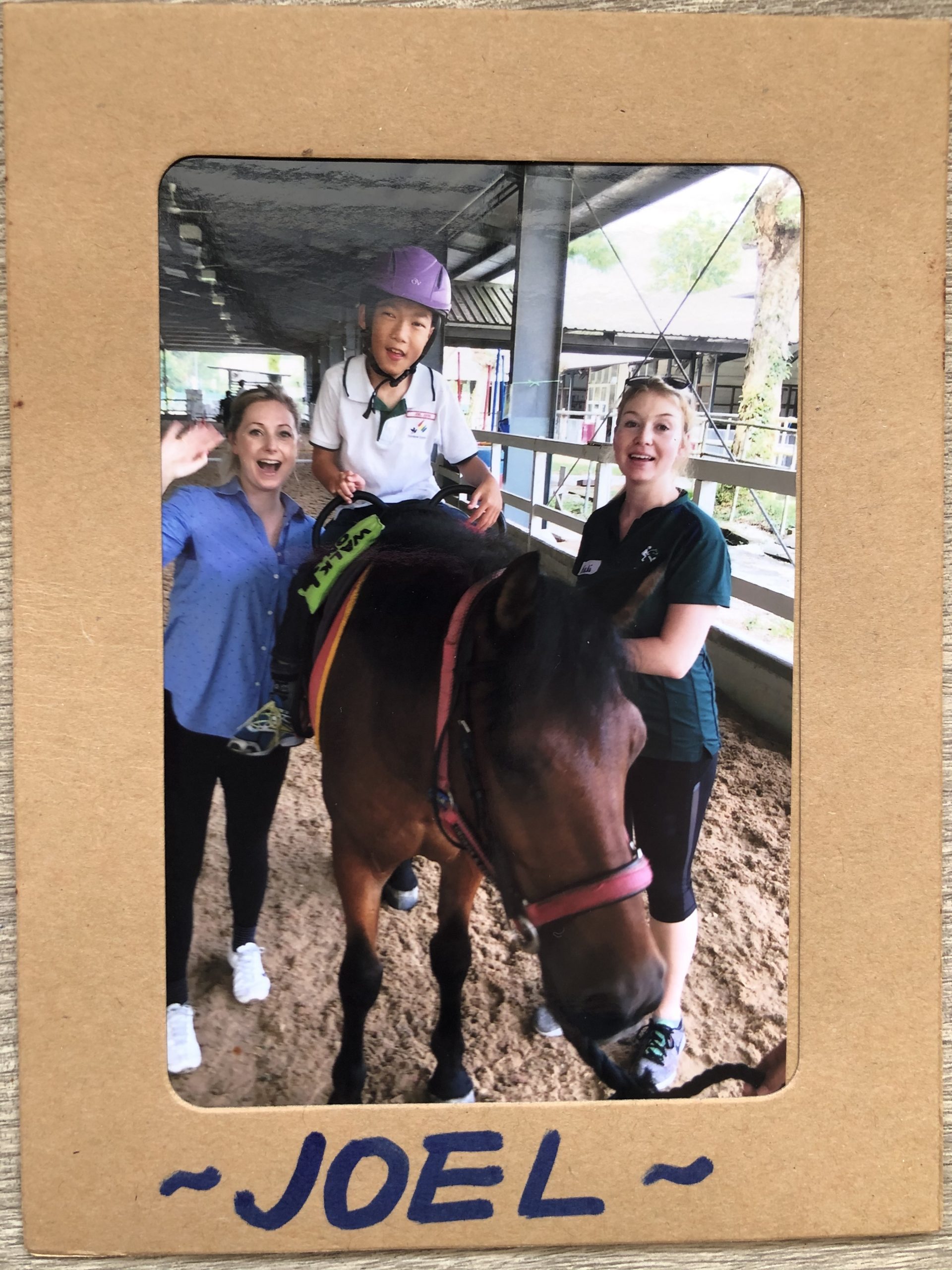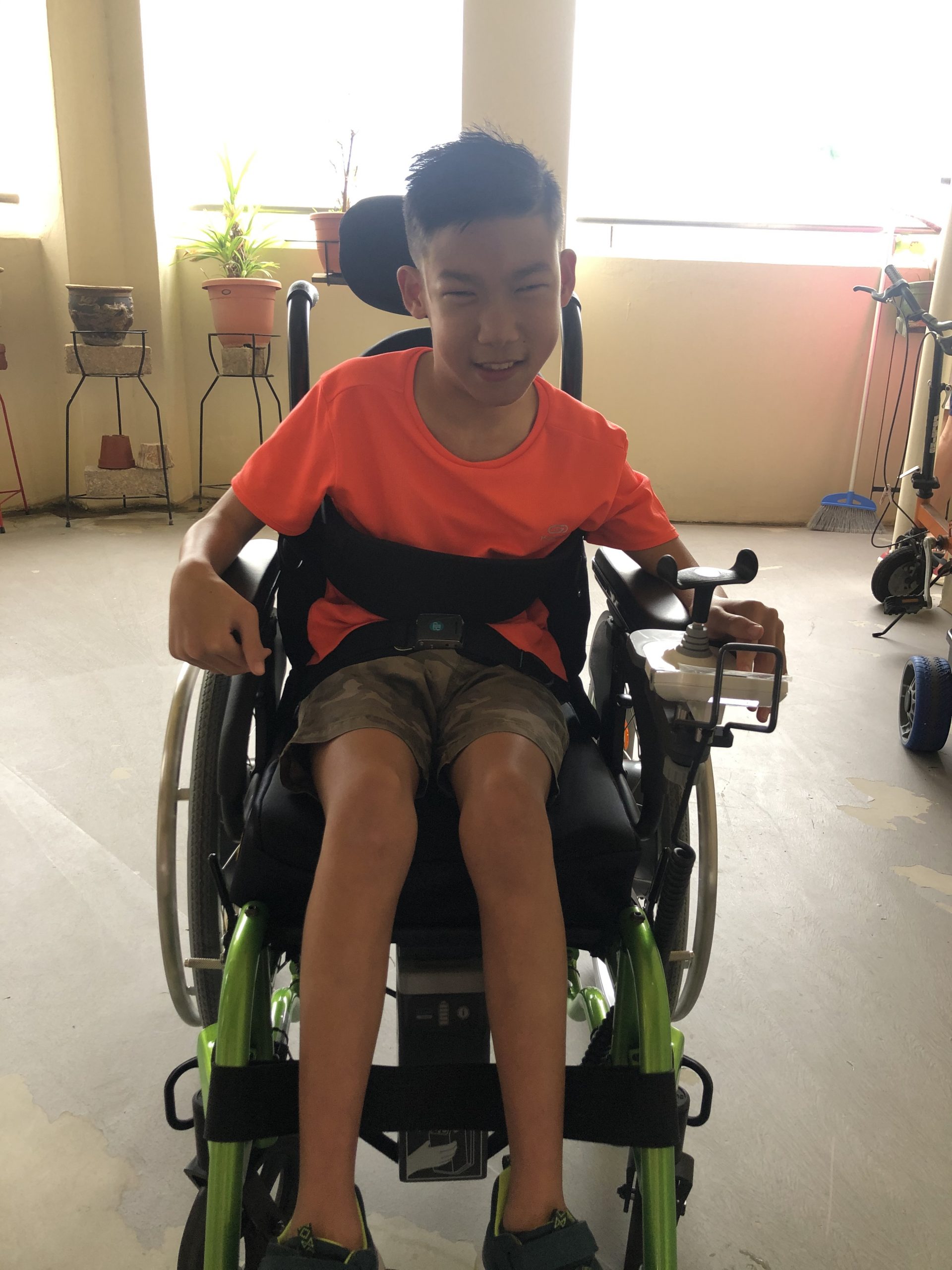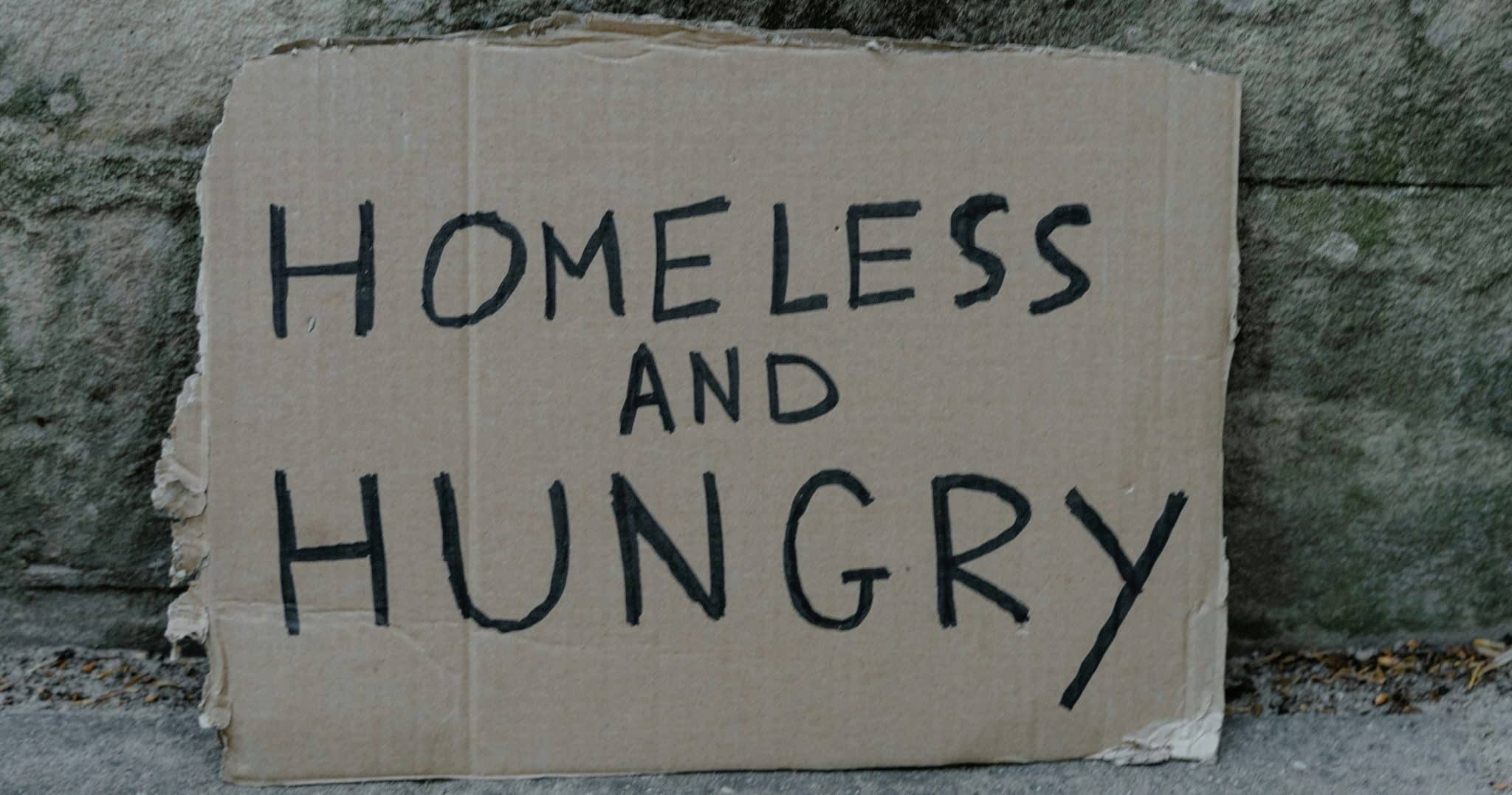“We prayed and there were so many miracles,” say parents of boy with rare genetic disorder. Now they are praying for one more
by Janice Tai // April 16, 2021, 6:25 pm

Doctors did not expect Joel (2nd from left) to live past one year. He is now 14. And the Jiang family says they have matured and learnt many things from their “weakness member”. All photos courtesy of the Jiang family.
Teenager Joel Jiang has been living on borrowed time.
Fourteen years ago, his parents happily went for a routine scan to check their baby’s gender.
Instead, they got a rude shock when the doctor told them that Baby Joel, with his serious heart condition, might not make it past one year of life.
Joel’s chances of survival were so slim and, were he to survive the birth, his long-term care so onerous, that well meaning people urged them to consider abortion.
“Congratulations, you have a baby boy … Wait, there is something wrong with his heart.”
Yet his mother had already seen his hands and feet from the scan and nothing could erase these images from her mind.
That happened to be the Good Friday weekend of 2006. Wrestling with the decision of whether or not to end a life, the couple spent the holy weekend weeping in bed.
When Easter Sunday rolled around, they pulled themselves together to go to church.
It was in church that day that the decision to keep Joel was made.
When the hymn “Because He Lives” played during the service, Jiang Ke Yue and Shirley See, then 26-year-old newlyweds, had tears streaming down their faces.
They knew God was speaking to them and answering their desperate prayers for guidance when they struggled to sing the second verse of the song: “How sweet to hold a newborn baby, and feel the pride and joy he gives; but greater still the calm assurance: this child can face uncertain days, because He lives.”
His mother had already seen his hands and feet from the scan and nothing could erase these images from her mind.
Since then, by the grace of God, Jiang and See defied the odds to bring Joel into the world and bring him up.
Through countless medical complications and troubles, God preserved Joel’s life and he slowly but firmly lodged himself in the hearts of his grandparents, parents and three younger siblings.
Next month, however, the Jiang family will face another major crossroad in their lives. It is time for Joel, 14, to go for an operation to replace a defective valve in his heart. The surgery may correct his heart problem but it may also be fatal.
Jiang and See, both 41 now, are reminded once again of the lyrics of the poignant song they hold dear to their hearts:
“Because He lives, I can face tomorrow,
Because He lives, all fear is gone;
Because I know He holds the future,
And life is worth the living,
Just because He lives!”

Joel’s first year in hospital, supported by breathing tubes.
Does the Jiang family have the faith to face tomorrow, or rather, June 23, when Joel is due to be operated on?
Looking back at the last 14 years, they start to find their answers.
On their knees
Imagine walking into the doctor’s clinic 20 weeks into your pregnancy, full of excitement because the routine scan would reveal your baby’s gender. The couple had even made plans to go shopping for baby apparel and accessories after the gender reveal.
She could not hug her newborn immediately as he was quickly whisked off to the Intensive Care Unit.
“Congratulations, you have a baby boy,” the doctor announced to them.
Then came the next line that would change the course of their lives: “Wait, there is something wrong with his heart.”
Joel was later formally diagnosed with DiGeorge Syndrome, a rare congenital disorder.
The human body is estimated to have 20,000 to 30,000 genes but people with the syndrome have 30 to 40 genes missing. In most cases, these deletions occur spontaneously in the bodies of the children. One in 4,000 people in the world suffer from this syndrome.
Besides having heart defects like other DiGeorge patients, Joel also suffers from low calcium levels, immune deficiency and other health complications, and has learning difficulties.
Yet it was clear to his parents from the start that God was with him.
“When he was born, everyone thought he would be blue, as he couldn’t breathe properly. There were many oxygen tanks on standby next to him,” said See.
Yet it was clear to his parents from the start that God was with him.
“But he came out pink and crying and looked normal,” she added, though unlike other mothers she could not hug her baby immediately as he was quickly whisked off to the Intensive Care Unit in an oxygen box.
He would spend the first year of his life in hospital.
Barely a week old, Joel underwent open-heart surgery to patch up a hole in his heart and widen a narrow major blood vessel. Due to complications, doctors had to stop his heart briefly.
After the surgery, his heart was so swollen that the surgeon had to leave his chest cavity open for three days. His heartbeat was erratic and the doctor told them to prepare for the worst.
Yet Joel survived.

Joel’s baptism in the hospital, performed by his grandfather, Rev Dr Kang Ho Soon, just before a major operation.
A few months later, he needed a second operation to further enlarge his narrow heart vessel, though he suffered a heart attack and likely brain trauma during the process, leaving him blind and unable to control his limbs.
“He had a favourite animal toy that makes a bell sound and we found out he was blind when we saw that he did not know where the toy was but followed its sound. He was so scared that he kept crying,” said Jiang.
He and his wife realised that medical science could not give them the answers they needed, and so they found themselves often praying on their knees and going for healing services.
Not just a religion
Prior to Joel’s birth, their faith in God had been marginal.
Jiang may be a pastor’s kid (his father, Rev Dr Kang Ho Soon, served as a pastor for 42 years in the Methodist Church in Singapore), but his relatively smooth-sailing life had him thinking that faith was not too relevant and it took a backseat in his life.
See was a first-generation Christian who initially went to church because it seemed to be an “ang moh thing” and therefore it was cool and hip among her teenage friends to belong to the faith.
“We prayed and there was so many miracles. One day he could just see again and regained the use of his limbs.”
Both of them did not really have a close and personal relationship with their God, until Joel came and their illusion of control was shattered.
“We prayed and there was so many miracles. One day he could just see again and regained the use of his limbs,” said Jiang.
“Suddenly, Christianity wasn’t just a religion anymore. We wanted to connect with Him and to receive the peace and comfort that we needed. When we go through trials, that is when we are closest to God,” said See.
At that time, there was one extremely risky operation left waiting for Joel.
Called the Ross procedure, it would be the first such operation done in Singapore if they were to proceed with it. It involved removing Joel’s own pulmonary valve and using it to replace his defective aortic valve. His parents were told to prepare for the worst.
On the eve of the operation, Joel was baptised and committed to the Lord. However, the operation was postponed several times.
Every night, fearing that he may die in his sleep, his mother would check on him to see if he is still breathing.
“It was delayed because of various reasons – the surgeon’s father was ill, or Joel was sick. We were angry because each time we had mentally prepared ourselves for the surgery. But on hindsight, we felt it was divine intervention as, later on, the doctors decided not to do it. If they had, Joel might not be with us today,” said See.
After one year in hospital, Joel was finally discharged.
From then on, it was a journey of trusting the Lord to bring them through each day, step by step.
See gave up her job as a young head of department teacher in school to care for Joel and her other children, Jonathan and Joash, twins who were born about a year after Joel, and their youngest child, Joy. Jiang is a lawyer.

Joel back at home with his feeding tube, with his father by his side.
Joel would fall sick every few months, and had a daily cocktail of nine different medications. Every night, fearing that he might die in his sleep, his mother would check on him to see if he is still breathing. Episodes of seizure and pneumonia peppered their days.
Joel could not walk, talk, sit or hold up his neck on his own, so Shirley brought him for regular physiotherapy, speech therapy and occupational therapy sessions.

Joel graduating from EIPIC (early intervention programme) at Rainbow Centre.
Every milestone in his life has been hard won.
While other children could walk by two, Joel took his first step when he was seven years old.

Joel’s first horse-riding class at RDA Singapore.
Yet his parents say God’s grace has always been on his life.
A special connection
Though Joel is unable to talk like most teenagers and uses a communication device to convey his thoughts, the first word he muttered was not “Mummy” or “Daddy”.
It was “Amen”.
“I would pray with him every night before bed and one day when he was four or five years old, he suddenly said ‘Amen’ at the end of my prayer. We believe he has a connection to God as he has a special sensitivity about him,” said See.
The first word he muttered was not “Mummy” or “Daddy”. It was “Amen”.
For instance, the first song he responded to in church – by smiling – was “Jesus Loves Me”. Now, he worships God by raising his hands when worship songs are sung. He also knows how to be still and not squirm when others are praying for him.
During their nightly prayer time, Joel would use sign language to gesture and ask his mother to pray for his friends or anything on his mind.
God also provided for their needs through the provision of competent and caring domestic helpers.
“God’s timing is incredible. One of our two helpers had to leave before the Circuit Breaker and we managed to get a new one, otherwise we would not have been able to make it through the Circuit Breaker period.

Joel, a lively boy, in 2016.
“They are very good helpers who are able to engage him and help him with his school work and physiotherapy exercises,” said See.
The family needs two helpers as others in the household also need special care. Jonathan has an autoimmune disorder and suffers from some side effects whenever he takes medication for his condition.
All of them also live with Shirley’s parents; her father has cancer.
One step at a time
“Actually I am the best candidate for depression … all my pregnancies were difficult pregnancies,” said See wryly. “For Joash, they couldn’t detect his heartbeat and later found he has a hole in his heart and Joy was found to have a high possibility of having Down Syndrome.
“But I see how God has brought us through each problem one step at a time, and from Him I draw my strength and joy.”
The hunger for normalcy in this family is felt by all in it. The children see their friends going on holiday trips to Japan or the United States and ask their parents why they cannot make similar long-haul trips.
“I see how God has brought us through each problem one step at a time, and from Him I draw my strength and joy.”
“The planning involved to go for such long trips would be immense. Every holiday that we have been on, some problem would crop up. We always have to do more things than other families and I wish we could have more normal family experiences,” said Jiang.
The Jiang family still travels and does activities together, though each outing can be a massive undertaking.
Joel, though he cannot walk on his own, has been quite the globetrotter and been to countries such as China, Australia, Korea, Thailand and Hong Kong.
Though he has a defective valve in his heart that requires his heart to pump harder, his parents take him on rollercoaster rides at the Universal Studios and others abroad.

Joel enjoying snow sledding in a ski resort in Seoul.
“We are the guinea pigs and would go up first to test it out to see if it would be okay for him. We don’t want to deprive him of such experiences because he gets so much joy out of taking the rides,” said See.
The family has matured and learnt many thing from their “weakness member”, added Jiang.

Joel on a rollercoaster ride in Melbourne with his family.
Through him, they learn contentment and gratitude.
Once, they asked Joel what he would like for his birthday. He typed the word “hug” in his communication device.
“Because of Joel, his three siblings have grown to be more caring and sensitive to the people around them,” observed See.

Joel’s personal motorised wheelchair from Make a Wish Foundation.
Sometimes, they even empathise with their mother and glare at Joel whenever he throws a tantrum.
Once, they asked him what he would like for his birthday. He typed the word “hug” in his communication device.
“They feel the injustice and anger on my behalf. I tell them that when he has a meltdown, perhaps there are some things he wants to say but can’t.
“They feel sorry for me and say they will take me to the United States next time and I would assure them that for anything I missed out on in this life, God will reward me in heaven,” said See.
When showing patience to Joel, she is reminded that the purpose of her life, and even that of Joel’s, is to show forth God’s character and nature in order to point others to Him.
“All of us are imperfect, but in different ways. Only God is perfect. And so this is how I view disability and my special child – that we are all the similar in our imperfection,” said See.
For the upcoming major operation, the Jiangs have decided to let their eldest child go under the knife as doctors say that his heart function is declining and that he is finally old enough to replace his defective valve with a new valve.

Joel taking part in the Special Olympics.
“Some doctors in the past told us not to go for the operation and let him just one day collapse and die when his heart gives way. That is not something we can live with. We want to give him a fighting chance at life,” said Jiang.
“Who will be with you as you go for the ‘cut cut’?” “You and Daddy,” said Joel. And then he pointed up.
Of course, they still question God about why they have to go through all this again – the trauma of possibly losing a child they have loved for the last 14 years.
Doctors say there is a 10% risk of complications developing – five times more than someone without the condition – as Joel’s heart has scars that may result in excessive blood loss during surgery.
Should he pull through the operation, the Jiangs have bigger dreams and plans for the family. They want to bring Joel on a long-haul trip to Disneyland in the United States, where he was conceived, and to have the family go on mission trips together.
“If the worst happens, I’d rather have Joel die on the operating table than being in a vegetative state because he is such a lively boy. If that happens, I asked my children to remind me not to be angry with God, because we believe he will be in heaven and we will see him again,” said See.
To Joel, the upcoming dreaded operation is referred to as “cut cut”.
Who will be with you as you go for the “cut cut”, his mother asked him.
“You and Daddy,” said Joel. And then he gestured and pointed up, and remembered that his God has been and will also be with him.
RELATED STORIES:
How an autistic boy in a wheelchair “shone as a light to the world”
“Disabled does not mean unable”: 10 persons with special needs ascend Mount Fuji
We are an independent, non-profit organisation that relies on the generosity of our readers, such as yourself, to continue serving the kingdom. Every dollar donated goes directly back into our editorial coverage.
Would you consider partnering with us in our kingdom work by supporting us financially, either as a one-off donation, or a recurring pledge?
Support Salt&Light



